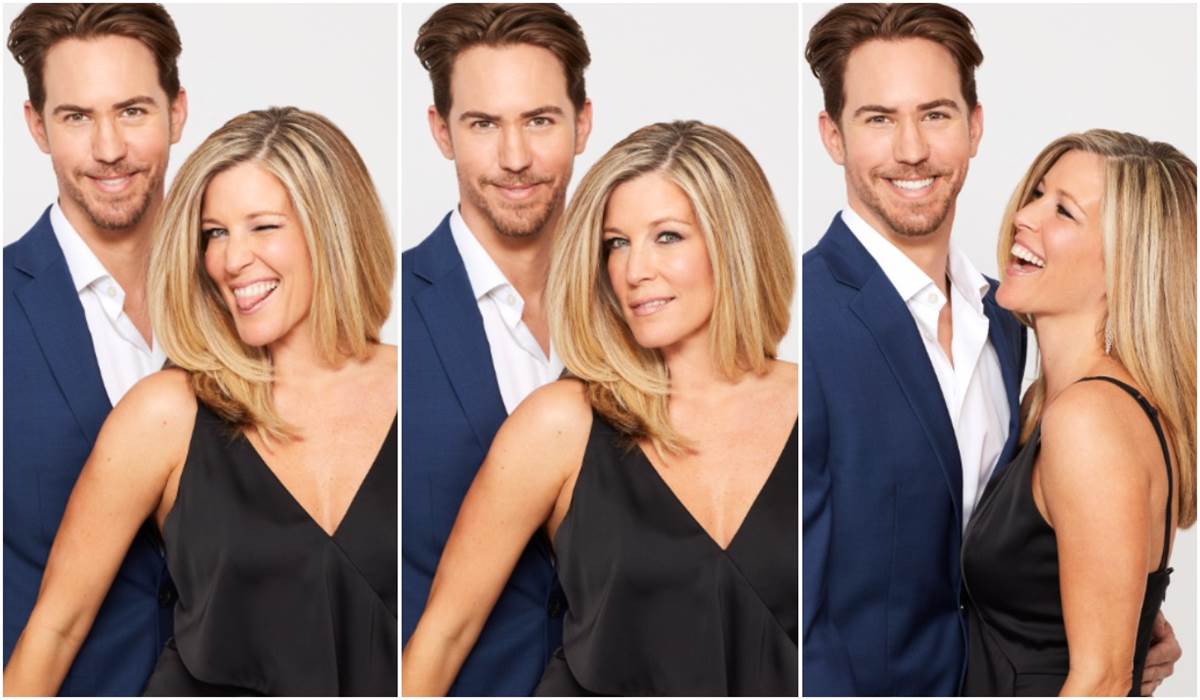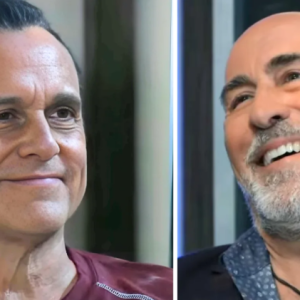In a world where celebrity interviews often dance around vulnerability with polished PR lines and carefully crafted soundbites, General Hospital icon Laura Wright—known to fans as the fiercely passionate Carly Spencer—did something different. She shattered the illusion. She told the truth. And in doing so, she pulled back the curtain on a deeply personal, often misunderstood struggle that too many face in silence: perimenopause.

Wright, a fixture of daytime drama with decades of powerhouse performances under her belt, sat down with Woman’s World and revealed what few stars ever dare to say. Not about scripts or co-stars. Not about awards or ratings. But about the real off-screen drama. The kind that unfolds in the quiet moments between takes. The kind that doesn’t make headlines—until now.
The headline alone hit like a gut punch:
“Perimenopause Took a Toll on Us.”
For longtime fans who’ve watched Laura navigate emotional landmines as Carly—losing children, marriages, and even her own identity at times—the idea that something in real life nearly broke her felt almost impossible. This is a woman who exudes strength. But, as she shared with haunting honesty, that strength was tested like never before—not by a storyline, but by her own body.
In the interview, Wright didn’t hold back. She described how the slow, creeping changes of perimenopause—those physical, emotional, and mental shifts—began to infiltrate her daily life. From mood swings that seemed to come out of nowhere to deep fatigue that clung like a shadow, the experience wasn’t just uncomfortable. It was debilitating. And the worst part? She didn’t understand what was happening. Not at first.
Her words were raw: “I didn’t recognize myself.”
She spoke of the frustration, the confusion, the slow unraveling of communication between her and the man in her life at the time. “We tried,” she said. “We really did.” But the unspoken tension that comes from feeling off-center, from not knowing how to explain what you’re going through, from waking up every day in a body that feels like it’s betraying you—it all added up. And eventually, something cracked.
“It broke us,” she admitted.
That line. So simple. So devastating. Because it wasn’t just about a romantic split—it was about what happens when real change isn’t talked about, when real struggles are faced alone, when society tells women to “tough it out” or dismisses their symptoms as moodiness or age.
And Wright wasn’t interested in letting that silence continue.
She’s become a quiet champion for women in midlife, determined to shine a light on the truth of perimenopause. She talked about the importance of knowing the signs, of advocating for your health, of giving yourself grace. She described the guilt of not being “her best self” and how damaging that expectation can be—not just for her, but for the people who love her.
But she also spoke of healing. Of reclaiming her body. Of learning to listen to herself again.
“Perimenopause didn’t define me,” she said. “But it demanded my attention.”
She’s taken that experience—every sleepless night, every tear shed in confusion—and turned it into a mission. To educate. To empower. To say: You’re not alone. To reach out to the women scrolling silently through forums at 2 a.m., wondering if what they’re feeling is real, if it’s normal, if they’re losing their minds. Wright’s answer? Yes, it’s real. Yes, it’s normal. And no, you’re not alone.
For her fans, this revelation didn’t diminish her strength—it amplified it. Because the courage it takes to speak up about something so personal, especially in an industry that often worships youth and perfection, is nothing short of revolutionary.
It’s a reminder that behind every fierce character is a woman fighting battles we may never see onscreen. And in Laura Wright’s case, it’s a battle she’s winning—not with bravado, but with bravery.
She’s not just Carly Spencer anymore. She’s a voice. A light. A force for change.
And while the drama of General Hospital will always deliver jaw-dropping plot twists and impossible returns from the dead, Laura’s story is something different.
It’s real.
It’s relatable.
And it’s one every woman needs to hear.
So if you’ve ever felt off, unseen, or unheard—if you’ve ever wondered why your body feels like a stranger—know this: you’re not alone. And thanks to voices like Laura Wright’s, that truth is finally being told.
Because sometimes, the most powerful storyline isn’t on the screen—it’s the one we live, survive, and rise from.
And that, perhaps, is the most unforgettable twist of all.





